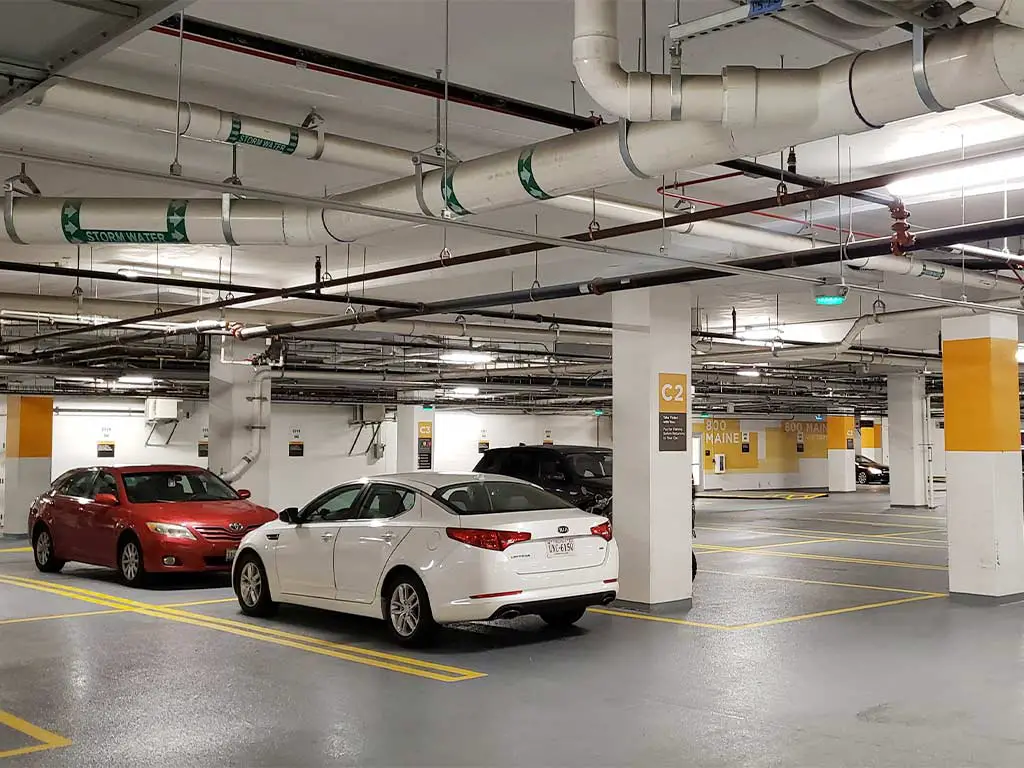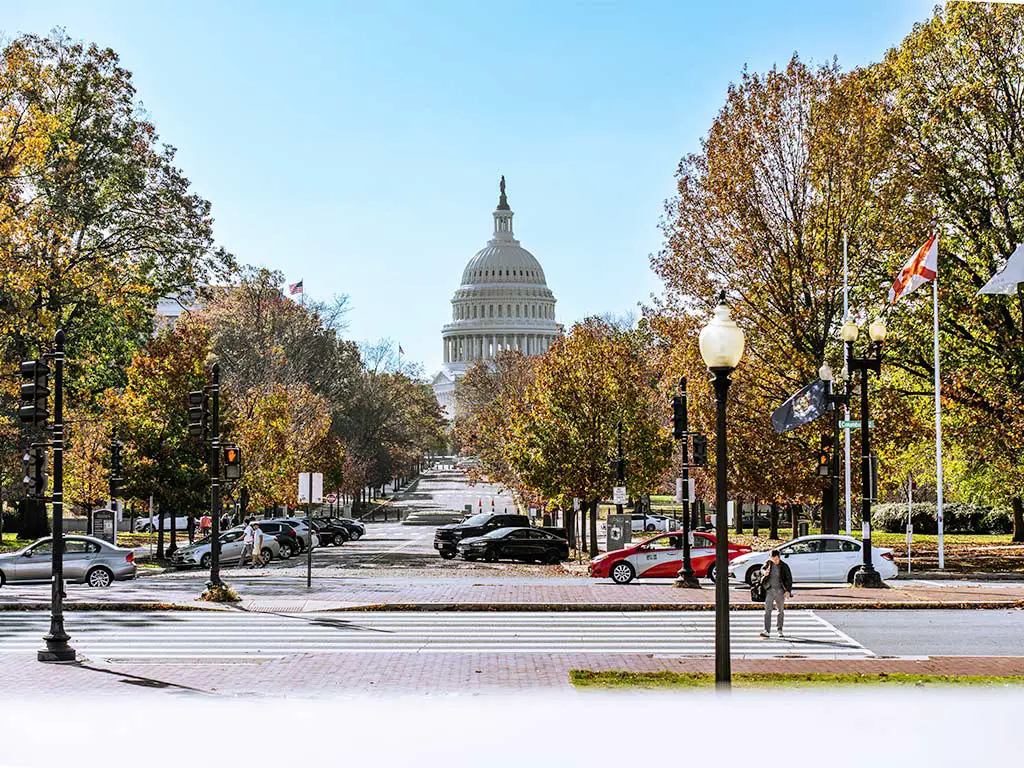Struggling to find parking in Washington DC? You’re not alone. Navigating the city’s parking landscape can be a daunting task for both visitors and locals alike.
With limited spaces, complex regulations, and bustling streets, it’s easy to feel overwhelmed.
But fear not! In this comprehensive guide, we’ve compiled 10 essential parking tips to help you conquer the challenges of parking in the nation’s capital.
Whether you’re planning a weekend getaway or navigating your daily commute, these tips will equip you with the knowledge and strategies needed to find the best parking spots, avoid fines, and make the most of your time in DC.
From understanding parking regulations to utilizing technology and exploring alternative transportation options, this guide has you covered.
So, let’s dive in and master the art of parking in Washington DC. Stay sharp till the end.
Parking Regulations in Washington DC
Parking regulations in Washington DC are indeed multifaceted, designed to manage the city’s bustling streets and ensure efficient traffic flow.
One notable aspect of these regulations is the implementation of restrictions during peak hours, particularly rush hours, to alleviate congestion and facilitate smoother movement of vehicles.
This strategic measure aims to optimize road capacity and minimize traffic delays during times of high demand.
Furthermore, the city is segmented into various parking zones, each with its own set of rules and regulations.
Residential permit parking zones, for instance, are established to prioritize parking availability for residents within designated neighborhoods.
Residents are typically required to obtain permits to park in these zones during specified hours, thereby safeguarding street parking spaces from being monopolized by non-residents, especially in densely populated areas.
Metered parking zones offer another parking option, allowing drivers to park in designated spaces for a fee during specified hours.
The rates for metered parking can vary depending on factors such as location, time of day, and duration of parking.
This system not only generates revenue for the city but also helps regulate parking demand and turnover, ensuring equitable access to parking spaces for all users.
In addition, Washington DC features restricted parking zones with specific regulations tailored to address unique challenges or concerns.
These zones may impose time limits on parking, restrict parking for certain types of vehicles such as commercial or oversized vehicles, or designate areas for loading and unloading activities.
Adhering to these regulations is crucial for drivers to avoid parking citations, fines, or even towing of their vehicles, underscoring the importance of vigilance and compliance with signage and parking regulations.
Overall, navigating the diverse parking regulations in Washington DC is essential for drivers to effectively utilize available parking options while adhering to the rules established to maintain order and efficiency on the city’s streets.
By staying informed and observant of signage and regulations, drivers can navigate the urban landscape with confidence and minimize the risk of encountering parking-related issues.
How to Find the Best Parking Spots in Washington DC

Finding the best parking spots in Washington DC can be a challenge due to the city’s dense population, limited parking availability, and varying parking regulations.
However, with some strategic planning and knowledge of the area, it’s possible to secure convenient parking options. Here are some tips to help you find the best parking spots in the nation’s capital:
Plan Ahead
Before heading to your destination, research parking options online using apps or websites that provide real-time information about parking availability and pricing.
This allows you to identify nearby parking garages, lots, or street parking options in advance.
Utilize Parking Apps
Several parking apps like SpotHero, ParkWhiz, or ParkMobile offer users the ability to reserve parking spots in advance, compare prices, and even receive discounts.
These apps can help you secure a spot in a preferred location without the stress of circling the block endlessly.
Explore Parking Garages
Washington DC has numerous parking garages scattered throughout the city.
While they may be slightly more expensive than street parking, garages provide a convenient and secure option, especially in busy areas like downtown or near popular attractions.
Consider Public Transportation
With an extensive public transportation system including buses, the Metro, and bikeshare programs, consider parking at a metro station or park-and-ride lot outside the city and taking public transportation into the city center.
This can save you the hassle of navigating congested streets and searching for parking.
Look for Residential Streets
In some neighborhoods, especially residential areas, street parking may be available with fewer restrictions or lower rates compared to commercial areas.
Be mindful of any posted signs indicating parking regulations or permit requirements.
Check Parking Regulations
Familiarize yourself with parking regulations in different parts of the city. Some areas may have restricted parking during certain hours, while others may offer free parking on weekends or holidays.
Pay attention to signage and meter instructions to avoid parking tickets or towing.
By following these tips and planning ahead, you can increase your chances of finding the best parking spots in Washington DC, saving time and frustration while exploring the city’s attractions and landmarks.
10 Essential Washington DC Parking Tips

Navigating parking in Washington DC can be a daunting task due to the city’s bustling streets, limited parking spaces, and intricate regulations.
Whether you’re a resident or a visitor, mastering the art of parking in the nation’s capital can save you time, money, and frustration.
Here are 10 essential tips to help you make the most of your parking experience in Washington DC:
1. Understand Parking Regulations
Washington DC has a myriad of parking regulations that vary depending on the neighborhood, time of day, and day of the week.
Familiarize yourself with the different parking signs and regulations, including metered parking, residential permit parking zones, street sweeping schedules, and restrictions for commercial vehicles.
Ignoring these regulations can result in costly parking tickets or even towing.
2. Plan Ahead
Before embarking on your journey, take some time to research parking options near your destination. Use online resources such as parking apps, websites, or maps to identify parking garages, lots, or street parking in the vicinity.
Planning ahead allows you to avoid the stress of searching for parking last minute and ensures you have a backup plan if your preferred spot is unavailable.
3. Consider Alternative Transportation
Given the challenges of parking in DC, consider alternative modes of transportation such as public transit, biking, or ridesharing.
The city boasts an extensive public transportation system, including buses and the Metro, making it easy to get around without a car.
Additionally, bikeshare programs like Capital Bikeshare offer a convenient and eco-friendly way to explore the city.
4. Use Parking Apps
Harness the power of technology by utilizing parking apps like SpotHero, ParkWhiz, or ParkMobile.
These apps provide real-time information about parking availability, pricing, and locations, allowing you to reserve a parking spot in advance or navigate to the nearest available spot.
Some apps even offer discounts or exclusive deals, helping you save money on parking fees.
5. Arrive Early
In popular areas or during peak times, parking spots can fill up quickly. To increase your chances of finding parking, plan to arrive early before the crowds descend.
Early birds not only secure prime parking spots but also avoid the stress of circling endlessly in search of a vacant space.
6. Explore Residential Streets
While commercial areas may have limited parking options and strict regulations, residential neighborhoods often offer more lenient parking conditions.
Explore side streets or residential areas near your destination to find free or unrestricted street parking. Be sure to check for any posted signs indicating parking restrictions or permit requirements.
7. Park and Ride
If you’re traveling into the city from the suburbs, consider utilizing park-and-ride facilities located near metro stations or major highways.
These facilities provide ample parking spaces at affordable rates and offer convenient access to public transportation for commuting into the city center.
Park-and-ride options not only alleviate the hassle of city driving but also reduce traffic congestion and environmental impact.
8. Be Mindful of Peak Hours
Certain times of the day, such as rush hours or evenings, may have stricter parking regulations or higher demand for parking spaces. Plan your parking accordingly to avoid peak hours and associated restrictions.
Additionally, be aware of special events, concerts, or sporting games that may draw large crowds and impact parking availability in surrounding areas.
9. Read Signs Carefully
Parking signs in Washington DC can be confusing and easily overlooked. Take the time to read parking signs carefully and decipher the regulations they convey.
Look for information regarding parking restrictions, time limits, metered hours, and permit requirements. Ignoring or misinterpreting parking signs can lead to parking tickets or fines.
10. Be Prepared to Pay
In many parts of the city, especially downtown or near popular attractions, parking comes at a premium. Be prepared to pay for parking, whether it’s at a metered space, parking garage, or through a parking app.
Keep spare change or a credit card handy for metered parking, and budget for parking fees in your travel expenses.
Mastering the art of parking in Washington DC requires patience, planning, and a good understanding of the city’s parking landscape.
By following these essential tips and staying informed about parking regulations and options, you can navigate the streets of the nation’s capital with confidence and ease.
Wrapping Up
Mastering parking in Washington DC requires a blend of foresight, flexibility, and awareness of the city’s intricate parking landscape.
By employing strategic planning, utilizing technology, and considering alternative transportation options, drivers can navigate the challenges of parking with greater ease and efficiency.
Understanding the diverse parking regulations, including residential permit zones, metered parking, and restricted zones, is crucial for avoiding fines and ensuring a smooth parking experience.
Whether it’s arriving early, exploring residential streets, or utilizing park-and-ride facilities, there are numerous strategies to optimize parking in the nation’s capital.
By following these tips and staying informed, drivers can navigate the bustling streets of Washington DC with confidence, making the most of their urban adventures while minimizing the stress and hassle of parking. Best of luck.




Scott Jung